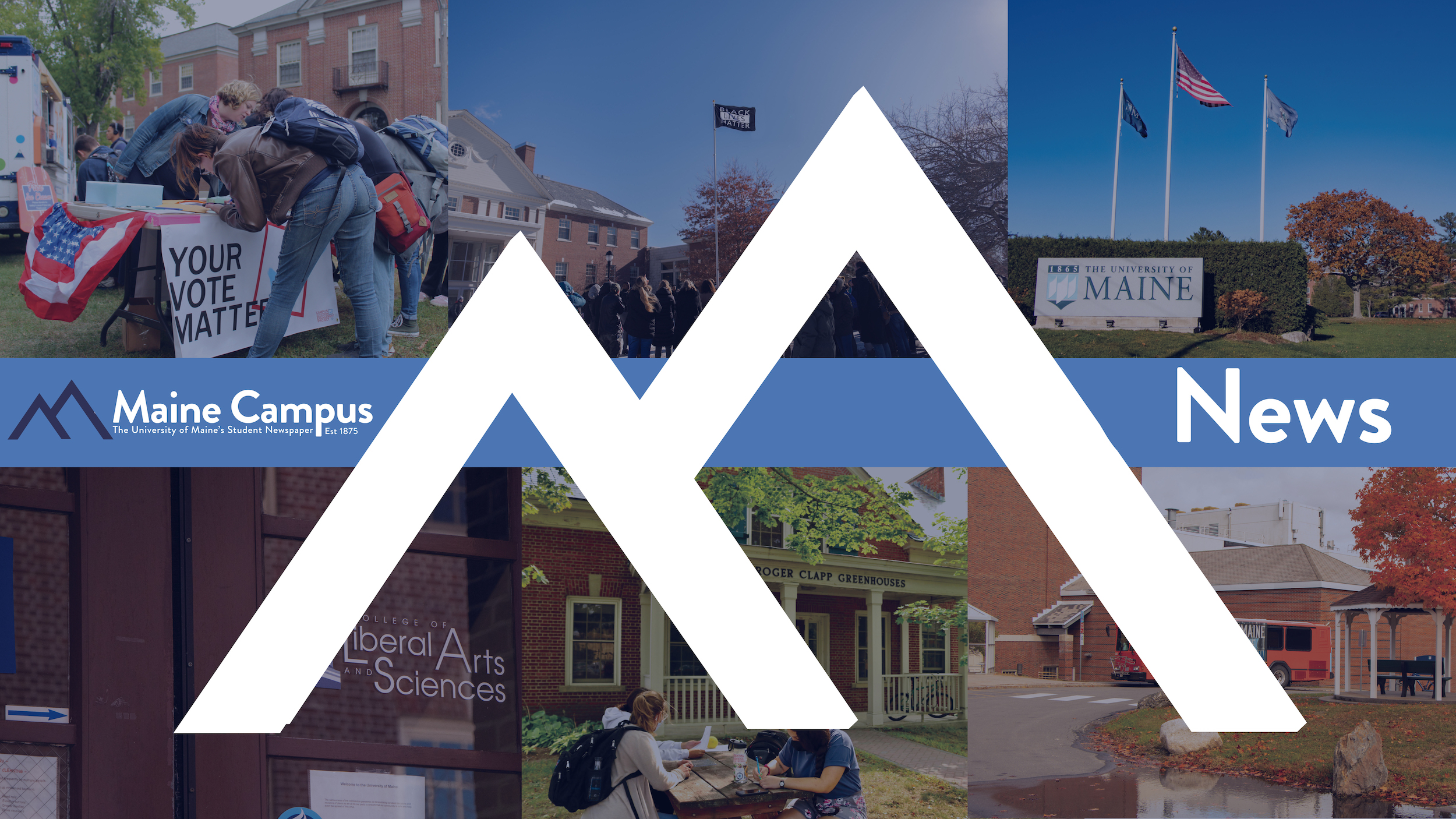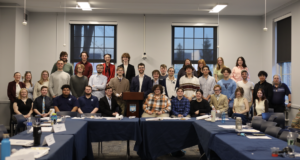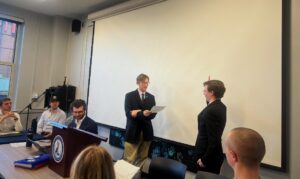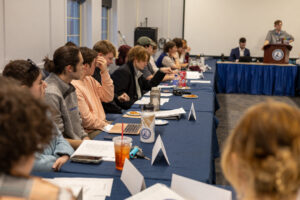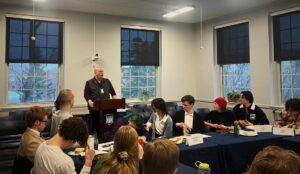On Tuesday, Feb. 8, the University of Maine General Student Senate talked with former UMaine Student Government President, Matthew Rodriguez.
Rodriguez, who grew up in Farmington attended Mt. Blue High School before attending UMaine in 2000. Rodriguez served as the President of UMSG from 2002-2003.
Rodriguez was a senator for UMSG before deciding to run for president.
“I felt like if I was to run for president I would have a decent chance, so in fall of 2002 I launched a campaign,” said Rodriguez.
Rodriguez talked about his experiences as the president of UMSG and the skills he gained from being in student government at UMaine.
“I learned a lot of the skills that I apply in the work that I’ve done during my time in student government at UMaine,” Rodriguez said. “Especially negotiation, compromise, teamwork, working as a group, consensus building and these are all skills that are really important when you’re working on deals, whether or not you’re in the framework of government or corporate demands.”
Rodriguez highlighted that a key issue student government was working on during his time as president was whether or not to build a student recreation center. Rodriguez and his fellow senators were heavily involved in campaigning for UMaine’s New Balance Student Recreation Center to be built.
The Advisor to Student Government, Lauri Sidelko, asked Rodriguez to give the current members of student senate some input on what it was like to be involved in a large infrastructure project like a recreation center.
“It was a really rewarding project to be involved in. I think ultimately the price tag came to something between $25 and $30 million so it was substantial in size at the time,” Rodgriguez said. “If you are looking at large infrastructure projects, don’t be discouraged or intimidated if the numbers are large, think about the power of the base of students and work together to really make your voices heard.”
Rodriguez has continued to be involved at UMaine even years after attending, serving on many committees including the Board of Visitors and the Investment Committee with the UMaine Foundation and is the chair of the 2005 Commission.
“It was a very positive experience in my life and I hope the same will be true with all of you,” Rodriguez said.
GSS also spoke with Samuel Hanes, the chair of the department of anthropology for UMaine, about revisions and proposals being made to the general education curriculum.
“We don’t do it very often. It hasn’t changed since 1996, so it’s been a long time and I feel like we’re due for an update,” Hanes said.
The current state of the proposal is to replace three key categories of the general education curriculum with new modern standards. The current categories of western cultural traditions, social contexts and human values would be removed and replaced with the three new categories of civics and community engagement, social equity and information literacy or health and well-being.
They also want to shift the focus towards more hands-on research experience for students through the general education curriculum.
“These changes wouldn’t go into effect until fall 2023 or 2024,” Hanes said. “We got slowed down by COVID[-19] but we’ve been very active this year in particular and we have a strong proposal, so a very rough rough draft, and are taking this proposal on campus to all kinds of groups.”
Hanes expressed that there is also a goal to create a committee that would specifically be focused on the general education curriculum.
“Nobody really manages gen-ed right now, so we want to create a committee that is actually responsible for organizing and promoting gen-eds,” Hanes said.
Like other committees on campus, Hanes also expressed that he hopes to see student representation on the committee if they are able to move forward with the idea.
Though the new general education proposal is still just a draft, the feedback and involvement from the student senate is another step toward progressing this mission.
The senate also spoke with a representative from the men’s club lacrosse team, who was seeking $4,000 for their spring 2022 season.
“We just moved into the D2 version of the NCLA, which is the highest branch of club sports, and our first game is against UNH,” Ben Knowlt, the vice president, said.
The resolution was passed and the senate allocated the funding to the club.
